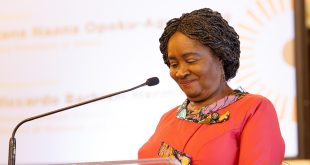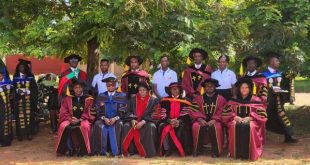The Tokyo International Conference on African Development (TICAD) was launched in 1993 by the Government of Japan, in partnership with the United Nations, World Bank, and African Union. It was conceived as a platform to bring Africa’s development agenda to the forefront of international cooperation, particularly emphasizing African ownership of its development priorities. Unlike donor-driven initiatives, TICAD has always been guided by partnership, self-help, and mutual accountability.
Over the years, TICAD has produced key policy frameworks such as the Tokyo Declaration (1993), the Yokohama Action Plan (2008, 2013), and the Nairobi Declaration (2016), each outlining concrete steps for African states in industrialization, infrastructure, trade, peacebuilding, and human resource development. The conference is held every three years, alternating between Japan and Africa, and has grown into one of the most respected global forums for Africa’s development dialogue.
For Ghana, TICAD is not just a diplomatic gathering but a strategic economic opportunity:
1. Investment and Infrastructure
TICAD mobilizes Japanese investment into energy, transport, and technology infrastructure. Ghana has historically benefited from Japanese-backed projects in roads, bridges, and energy—critical pillars for industrial growth.
2. Technology Transfer and Industrialization
Japan’s comparative strength in high technology and industrial efficiency aligns with John Dramani Mahama’s vision of building a productive, job-creating, and inclusive economy. Through TICAD, opportunities for technical cooperation, scholarships, and skills development can be leveraged to equip Ghana’s workforce with modern competencies, drive industrial growth, and ensure that economic transformation directly benefits ordinary citizens.
3. Trade and Market Access
TICAD commitments often include trade facilitation and capacity building that open Japanese markets to African exports. Ghana’s cocoa, processed foods, and industrial goods gain opportunities for penetration into Asian markets.
4. Health and Human Development
Japan has consistently supported Ghana in public health—such as infectious disease control, maternal health, and universal healthcare programs—through TICAD pledges. Strong health systems are vital for a productive labor force.
*5. Peace and Security*
Ghana’s role as a peacekeeping nation and a stable democracy makes it a priority partner under TICAD’s peace and security pillar. This enhances Ghana’s reputation as a gateway for investment into West Africa.
Conclusion
John Dramani Mahama’s participation at TICAD is not merely diplomatic symbolism. It is a strategic economic mission with far-reaching implications for Ghana’s investment climate, industrial expansion, technology access, trade competitiveness, and social development. If translated into actionable partnerships, this visit could serve as a springboard for Ghana’s economic emancipation and long-term prosperity.
E- mail: ahmedgedel69@gmail.com
 Home Of Ghana News Ghana News, Entertainment And More
Home Of Ghana News Ghana News, Entertainment And More





